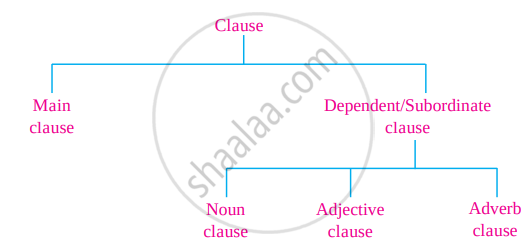Advertisements
Advertisements
प्रश्न
Add your own sentences to those given in the passage to illustrate the uses of ‘have’.
To refer to eating/drinking
उत्तर
To refer to eating/drinking
Sentences
- I have this chocolate pastry every evening.
- Let me buy you a drink. What would you like to have?
- Why don't you stay and have lunch with us?
- I'm hungry; let's have dinner at that hamburger place.
- I have had the best Italian cuisine in that restaurant.
APPEARS IN
संबंधित प्रश्न
Write the –ing form of the verbs.
| 1. | Come ______. |
| 2. | Take ______. |
| 3. | Fly ______. |
| 4. | Swim ______. |
| 5. | Study ______. |
| 6. | Read ______. |
Mary didn't do her homework last Monday, _______?
Rewrite the sentence using the given word.
The flight has lost the contact.
I ______.
Complete the following with appropriate conditional clause.
Jayashree would travel to France, ______.
Frame illustrative sentence to distinguish the meaning of the word in the following cluster.
scraping – scrapping – scrubbing
Rewrite the following sentence using ‘If ’ without changing the meaning.
The portraits would not have been so natural unless the artist had given his best.
Find out the antonym of the underlined word in each of the following sentence.
He greeted me with his usual smile and banter.
______ you help me cross the road, young man?
Read the following dialogue and complete the report in the space provided.
| Priya | Where are you going? |
| Vijay | I am going to the railway station. |
| Priya | Why are you going there? |
| Vijay | I want to receive my uncle who is coming from Bangalore. |
| Priya asked Vijay | (a) ______ |
| Vijay replied | (b) ______ |
| Priya further inquired | (c) ______ |
| Vijay stated that | (d) ______ |
We have seen that clauses are parts of a sentence, and they are classified as main and subordinate or dependent clauses. Dependent clauses can be further classified as follows according to the work they do in a sentence.

How do we decide whether a clause is a noun clause, an adjective clause or an adverb clause? There is a simple rule - we can replace an adverb clause with an adverb, an adjective clause with an adjective and a noun clause with a noun.
Look at the following examples -
- But I don’t know the answer. (Noun)
But I don’t know what they want. (Noun clause) - He told us a funny story. (Adjective)
He told us a story that was funny. (Adjective clause) - They went away. (Adverb)
They went when you were talking to your friend. (Adverb clause)
Now complete the following on your own :
- But I don’t know ____________.
- He told us ____________.
- They went ____________.
